Diesel Generator Maintenance: How to Prevent the Most Frequent Issues
Diesel generators are super important for lots of places, like construction sites and hospitals, because they give power when the main grid goes down. But, just like anything mechanical, they can have their issues. Knowing what usually goes wrong with these machines can save you a lot of headaches and money. We’re going to talk about some common diesel generator problems, so you can keep yours running smoothly.
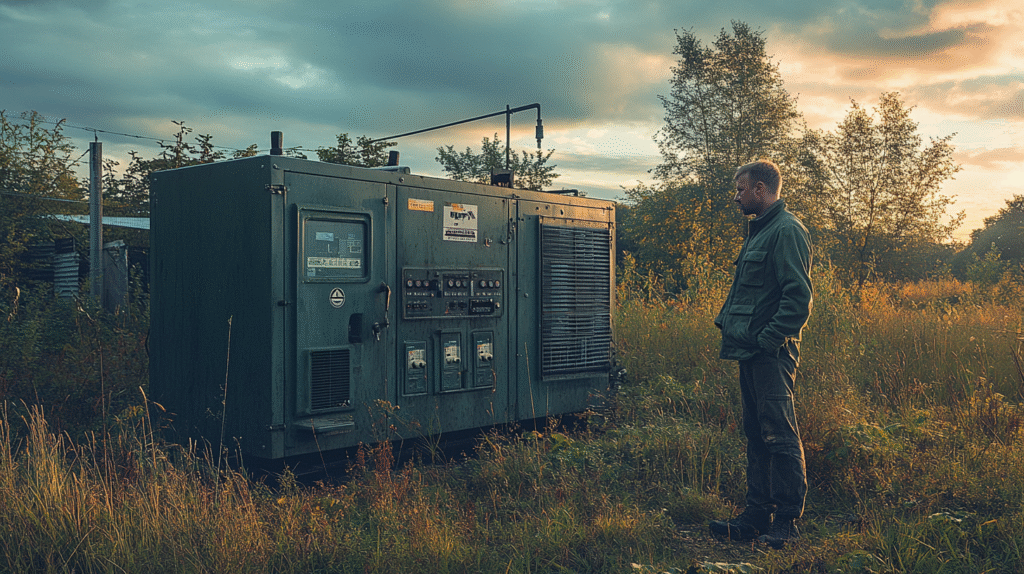
Key Takeaways
- Regular checks of fuel levels and quality are a must to avoid unexpected shutdowns.
- Engine components like air filters and batteries need consistent attention for reliable operation.
- Fluid leaks, especially wet stacking, point to specific operational habits that need adjusting.
- Troubleshooting starting and power delivery issues often involves checking basic connections and fuel flow.
- Keeping an eye on engine temperature, exhaust, and electrical connections helps maintain overall health.
Understanding Common Diesel Generator Problems
Okay, so let’s talk about what usually goes wrong with diesel generators. It’s not always rocket science, but knowing the common issues can save you a lot of headaches down the road. I mean, nobody wants their generator to quit when they need it most, right?
Fuel Depletion Issues
Honestly, this is probably the most obvious, but it happens all the time. Running out of fuel is a super common reason why a generator won’t start. It sounds simple, but you’d be surprised how many people overlook it. Always check your fuel levels first! And if you’re burning through fuel faster than usual, you might have a leak somewhere. That’s something you need to get fixed right away, because it’s not just about the money; it’s a safety hazard too.
Dirty Air Filter Impact
Think of your generator like a person – it needs to breathe clean air to work properly. A dirty air filter restricts airflow, which can mess with the combustion process and reduce the generator’s efficiency. It’s like trying to run a marathon with a stuffy nose. Not fun, and definitely not effective. Here’s a quick rundown:
- Reduced power output
- Increased fuel consumption
- Potential engine damage
Changing your air filter regularly is one of the easiest and cheapest ways to keep your generator running smoothly. Don’t skip this step!
Battery Malfunctions
Just like your car, a diesel generator relies on a battery to start. If the battery is dead or weak, you’re not going anywhere. Common causes of battery problems include:
- Old age (batteries don’t last forever)
- Corrosion on the terminals
- Loose connections
Make sure to check your battery regularly and clean those terminals! A multimeter can be your best friend here. If your generator has been sitting idle for a while, consider using a battery charger to keep it topped off. It’s a small investment that can prevent a big headache later.
Addressing Performance Decline in Diesel Generators
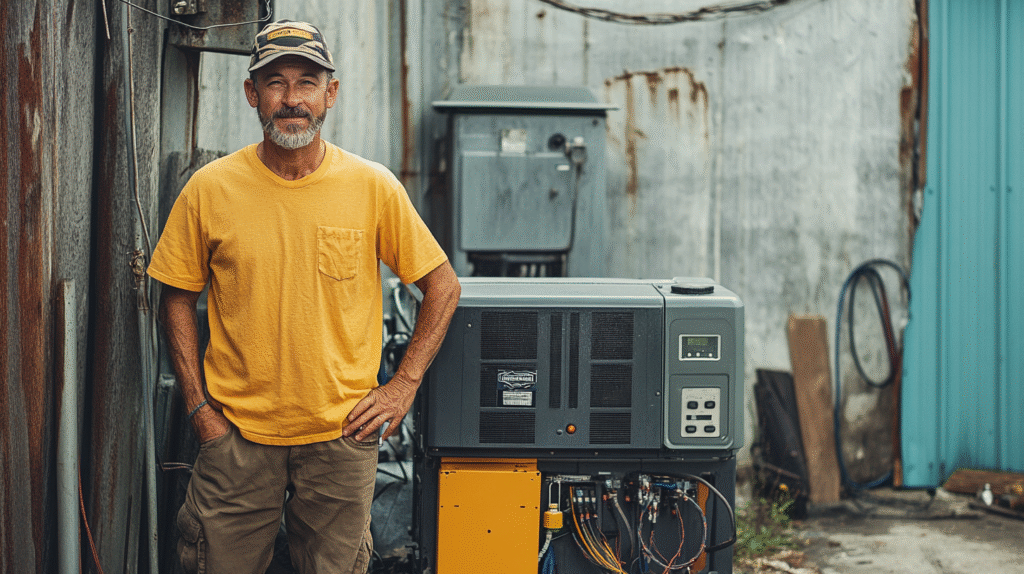
It’s frustrating when your diesel generator doesn’t perform as expected. You rely on it, and when it starts acting up, it can throw a wrench into your plans. Let’s look at some common issues that cause performance decline and how to tackle them.
Engine Stalling During Operation
One of the most common signs of a struggling generator is engine stalling. If your generator starts fine but then sputters and dies while running, several things could be to blame. For natural gas generators, it might be fouled spark plugs that aren’t providing enough power. However, since diesel generators don’t have spark plugs, the issue is different.
For diesel generators, a malfunctioning fuel pump is often the culprit. It could also point to a bigger problem, like defective parts or contaminated fuel clogging the fuel pump and hoses. It’s a good idea to get it checked out by a technician to pinpoint the exact cause.
Contaminated Fuel Lines
Contaminated fuel is a real headache for diesel generators. Over time, dirt, debris, and even water can find their way into the fuel tank. This contamination can then travel through the fuel lines, clogging filters and injectors. This leads to reduced fuel flow, which causes the engine to run poorly or even stall. Regular fuel filter changes are a must, and consider using a fuel stabilizer to prevent the growth of algae and bacteria, especially if the generator sits idle for extended periods. You might need to flush the fuel system if contamination is severe.
Incorrect Fuel Gauge Readings
An inaccurate fuel gauge can be surprisingly disruptive. Imagine thinking you have plenty of fuel, only to have the generator shut down unexpectedly. This can happen due to a faulty sending unit in the fuel tank or a problem with the gauge itself. Sometimes, it’s a simple fix, like cleaning the electrical connections to the sending unit. Other times, you might need to replace the unit or the gauge. It’s worth checking the wiring and connections first before assuming the worst. If you are unsure, consult a professional to check the generator’s performance.
Dealing with performance issues in diesel generators can be tricky, but with a systematic approach, you can often identify and resolve the problem. Regular maintenance, clean fuel, and attention to detail are key to keeping your generator running smoothly.
Here’s a simple checklist to help troubleshoot performance issues:
- Check the fuel level and condition.
- Inspect the air and fuel filters.
- Look for any signs of leaks or damage.
- Listen for unusual noises.
Preventing Fluid Leaks and Contamination
Fluid leaks and contamination can seriously impact a diesel generator’s performance and lifespan. Addressing these issues promptly is key to maintaining reliability. Regular inspections and proactive maintenance are your best defense.
Wet Stacking Phenomenon
Wet stacking is a common issue, especially in generators that frequently operate at low loads. It occurs when unburnt fuel, oil, and water condense in the exhaust system, forming a thick, dark substance that leaks out. This not only creates a mess but also reduces efficiency.
- Ensure the generator runs at its rated load for a period to burn off excess fuel.
- Consider installing a load bank for periodic testing.
- Monitor exhaust temperatures to detect wet stacking early.
Running your generator at low loads for extended periods is like driving a car only in first gear – it’s inefficient and causes buildup. Make sure to give it a chance to stretch its legs and burn off those deposits.
Fuel System Leaks
Fuel leaks are not only wasteful but also pose a fire hazard. Regularly inspect fuel lines, connections, and the fuel tank for any signs of leaks. Pay close attention to areas where hoses connect to fittings, as these are common points of failure. Addressing leaks promptly prevents fuel loss and potential environmental damage. Check the tank pumps and fuel lines for any cracks.
Oil and Coolant Contamination
Contamination of oil and coolant can lead to significant engine damage. Oil can become contaminated with fuel, water, or debris, reducing its lubricating properties. Coolant can also become contaminated, leading to corrosion and reduced cooling efficiency. Regular fluid analysis can help detect contamination early.
- Change oil and coolant according to the manufacturer’s recommendations.
- Use high-quality filters to remove contaminants.
- Inspect coolant hoses regularly for wear and tear. Replace regular maintenance every three to four years.
Resolving Starting and Power Generation Issues
Diesel generators, while reliable, can sometimes face issues related to starting and power output. Let’s explore some common problems and how to address them.
Failure to Start
One of the most frustrating issues is when your diesel generator simply refuses to start. Several factors could be at play here. First, check the fuel level – it sounds obvious, but running out of fuel is a common oversight. Also, inspect the automatic operation controls to ensure they are properly set. The main control switch must be in the “off/reset” position for the generator to automatically kick in when needed. If someone presses the emergency stop button or triggers alarms on the control switch, your generator’s automatic settings may have turned off.
- Check fuel levels and fuel lines for blockages.
- Inspect the battery for charge and proper connections.
- Examine the starter motor for any signs of damage.
If your generator still won’t start after checking these basics, it might be time to call in a professional. There could be a more complex issue at hand, such as a faulty fuel pump or a problem with the engine’s internal components.
No Power Output
Even if the generator starts, it might not produce any power. This can be due to a tripped circuit breaker or a faulty alternator. Check the circuit breaker first; resetting it might solve the problem immediately. If the breaker trips repeatedly, there’s likely an overload or a short circuit somewhere in the system. The alternator could be the culprit if the breaker is fine.
Unstable Voltage and Frequency
Fluctuating voltage and frequency can damage sensitive electronic equipment. This issue often stems from problems with the generator’s voltage regulator or governor. The voltage regulator maintains a steady voltage output, while the governor controls the engine speed to maintain a consistent frequency. If either of these components malfunctions, the generator’s output will become unstable. Here’s a quick troubleshooting guide:
- Inspect the voltage regulator for damage or loose connections.
- Check the governor linkage for proper movement.
- Ensure the engine is running at the correct speed.
| Symptom | Possible Cause | Solution |
|---|---|---|
| Voltage fluctuations | Faulty voltage regulator | Replace the voltage regulator |
| Frequency variations | Governor malfunction | Adjust or replace the governor |
| Both voltage and frequency | Engine speed instability | Check fuel supply and engine components |
Maintaining Optimal Engine Health

Keeping your diesel generator’s engine in top shape is super important for reliable performance and a long lifespan. Neglecting engine health can lead to breakdowns and costly repairs. Let’s look at some common issues and how to tackle them.
High Engine Water Temperature
If your generator is running hot, it could be a sign of trouble. Coolant is what keeps your generator at the right temperature, moving heat away from the engine. Low coolant levels, often from evaporation or leaks, are a common culprit.
- Check coolant levels regularly.
- Look for leaks around hoses and the radiator.
- Make sure the cooling system is clean and free of debris.
Overheating can cause serious damage to the engine, so it’s important to address this issue quickly. Ignoring high temperature warnings can lead to warped cylinder heads or even a seized engine.
Excessive Black Smoke Emission
Black smoke coming from the exhaust usually means incomplete combustion. This can be due to a few things, like a dirty air filter, faulty injectors, or overloading the generator.
- Check and replace the air filter regularly.
- Have the fuel injectors inspected and cleaned.
- Avoid running the generator at excessive loads for extended periods.
Loose Electrical Connections
Loose connections can cause all sorts of problems, from starting issues to unstable power output. Vibration during operation can loosen connections over time, so it’s a good idea to check them periodically. Make sure all connections are tight and free of corrosion.
- Visually inspect all electrical connections.
- Use a wrench or pliers to tighten any loose connections.
- Apply a corrosion inhibitor to prevent future problems.
Regular oil changes are a must, just like with your car. Keeping an eye on these key areas will help keep your generator running smoothly for years to come.
Ensuring Proper Airflow and Filtration
Diesel generators rely on clean air and effective filtration to operate efficiently and reliably. Neglecting these aspects can lead to a cascade of problems, from reduced power output to engine damage. Let’s explore some common issues and how to address them.
Clogged Air Intake
A clogged air intake is like trying to breathe through a straw – the engine struggles to get enough air. This can lead to incomplete combustion, reduced power, and increased fuel consumption. Dirty air filters are often the culprit. Regularly inspect and replace the air filter to ensure proper airflow. Consider installing a reusable filter to save on replacement costs and reduce waste. A clean air filter ensures that the engine receives the necessary air for efficient combustion.
Ineffective Oil Filtration
Oil filters play a vital role in removing contaminants from the engine oil. Over time, these contaminants can build up and cause wear and tear on engine components. Ineffective oil filtration can lead to:
- Reduced engine lifespan
- Increased oil consumption
- Poor engine performance
Regularly changing the oil and oil filter is crucial for maintaining optimal engine health. Use high-quality oil filters that meet the manufacturer’s specifications.
Restricted Exhaust Flow
A restricted exhaust flow can create backpressure, hindering the engine’s ability to expel exhaust gases efficiently. This can result in:
- Reduced power output
- Increased fuel consumption
- Overheating
Check the exhaust system for any obstructions, such as carbon buildup or damaged components. Addressing exhaust flow issues promptly can prevent more serious engine problems.
Optimizing Fuel System Efficiency
It’s easy to overlook the fuel system, but keeping it in top shape is key for reliable generator performance. A well-maintained fuel system not only ensures smooth operation but also extends the lifespan of your diesel generator. Let’s explore some common issues and how to address them.
Fuel Pump Malfunctions
Fuel pumps are the heart of the fuel system, and when they fail, your generator won’t run. A failing fuel pump can lead to inconsistent fuel delivery, causing the engine to stall or not start at all. It’s important to regularly inspect the fuel pump for signs of wear and tear, such as leaks or unusual noises. If you notice any issues, replace the pump promptly to avoid further problems. Also, make sure the fuel lines are clear of any obstructions.
Oxidation and Sludge Buildup
Over time, diesel fuel can oxidize and form sludge, which can clog fuel lines and filters. This buildup restricts fuel flow and reduces engine performance. To combat this, use a fuel stabilizer to prevent oxidation and regularly clean or replace fuel filters. Avoid using old or stale fuel, as it’s more prone to oxidation. Typically, it’s best to avoid fuel that is older than two months.
Improper Fuel Storage
How you store your fuel can significantly impact its quality and the overall efficiency of your generator. Always store fuel in a clean, dry, and cool environment to prevent contamination and degradation. Use appropriate fuel containers that are designed for diesel storage. Avoid storing fuel for extended periods, as it can lead to oxidation and sludge formation. Consider using a hydrogen generator for a cleaner alternative.
Proper fuel storage is not just about keeping the fuel clean; it’s about preserving its chemical properties. Temperature fluctuations, exposure to air, and the presence of contaminants can all degrade fuel quality, leading to performance issues and potential damage to your generator.
Wrapping Things Up
So, we’ve gone over a bunch of common problems with diesel generators, right? Things like running out of fuel, dirty filters, or even that weird “wet stacking” thing. The big takeaway here is that knowing what can go wrong is half the battle. If you can spot these issues early, or even better, prevent them with regular check-ups, you’re going to save yourself a lot of headaches and probably some cash too. Keep an eye on your generator, give it a little love, and it’ll be there for you when you really need it. And hey, if something feels totally off, don’t be afraid to call in a pro. Sometimes, it’s just better to let the experts handle it.
Frequently Asked Questions
What’s the main issue people have with generators?
The most common problem with generators is not taking care of them properly. If you don’t do regular check-ups and look for worn-out parts, you’re likely to run into trouble.
What does AVR mean for a generator?
An AVR, or Automatic Voltage Regulator, is a part in generators that helps keep the electricity flow steady. It changes unstable power levels into smooth, consistent ones.
How do you fix a generator that isn’t making power?
If your generator is running but not making power, check the wires and connections with a tool called a multimeter. If a connection is bad, clean it and make sure it’s tight. Sometimes, the wiring can get burned if the generator works but doesn’t produce electricity.
How can you tell if a generator is bad?
To see if a generator is faulty, turn it on and let it run. Listen carefully for any strange noises, look for smoke, and check if the power it’s making is steady. If something seems off, it might be broken.
What are some common problems with diesel generators?
Diesel generators often have issues like running out of fuel, dirty air filters, or batteries that don’t work. They can also have problems with fuel leaks, engine stalling, or not making power.
How can I prevent common generator problems?
Regular maintenance is key to keeping your generator in good shape. This includes checking fuel levels, cleaning or replacing air filters, inspecting the battery, and looking for any leaks. Following the manufacturer’s schedule for service can prevent many problems.

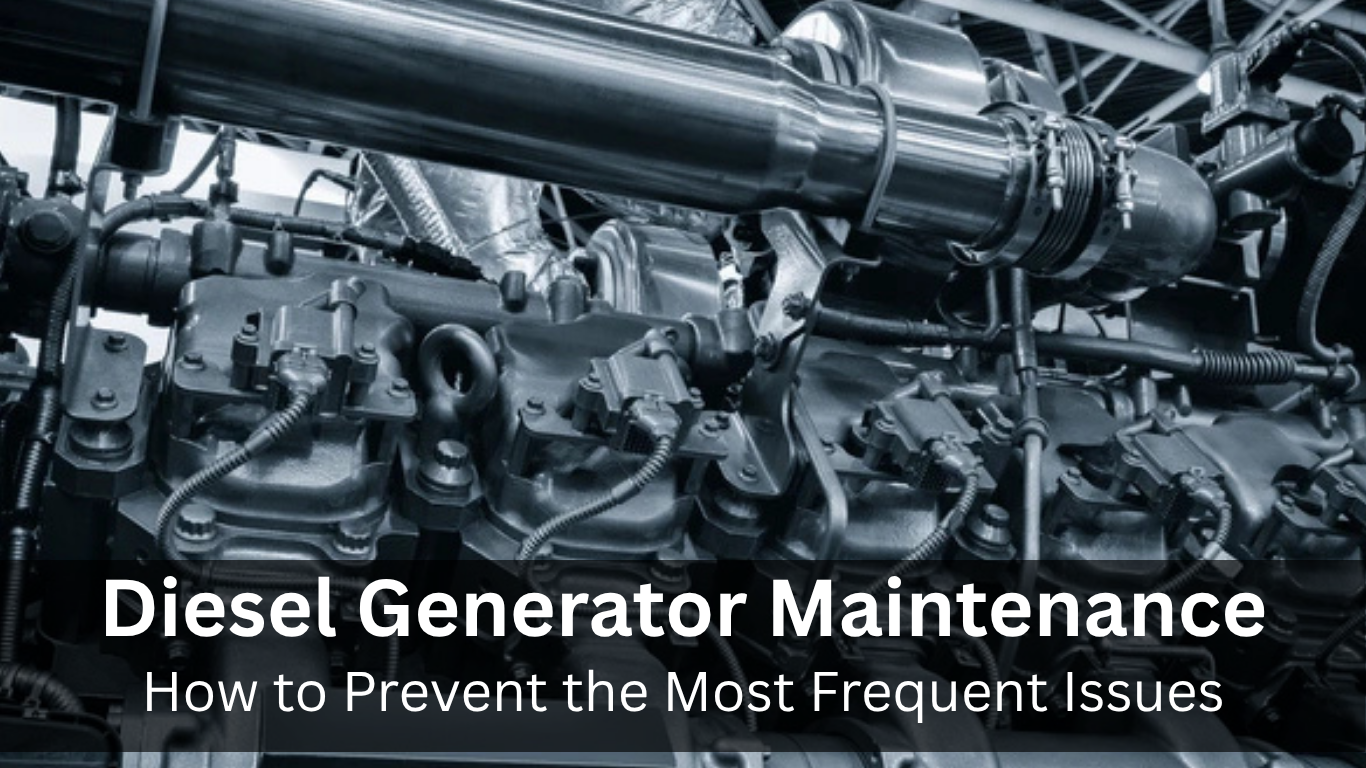

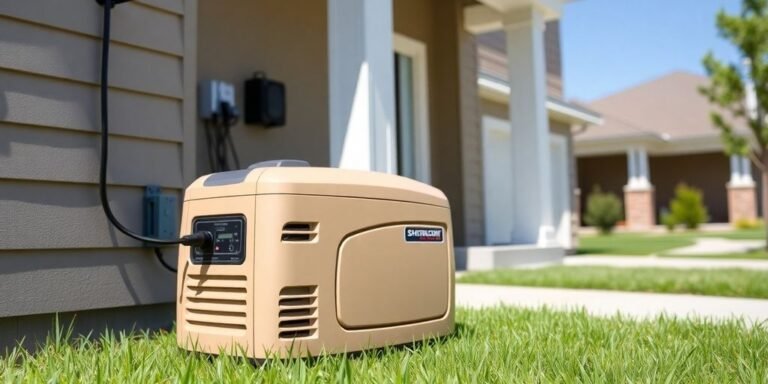
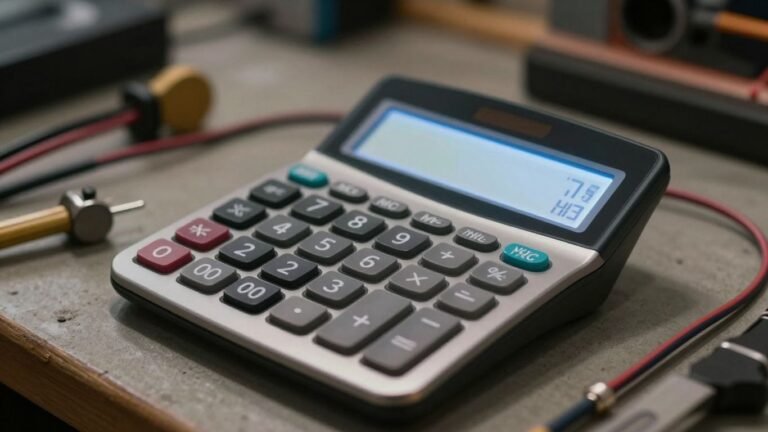

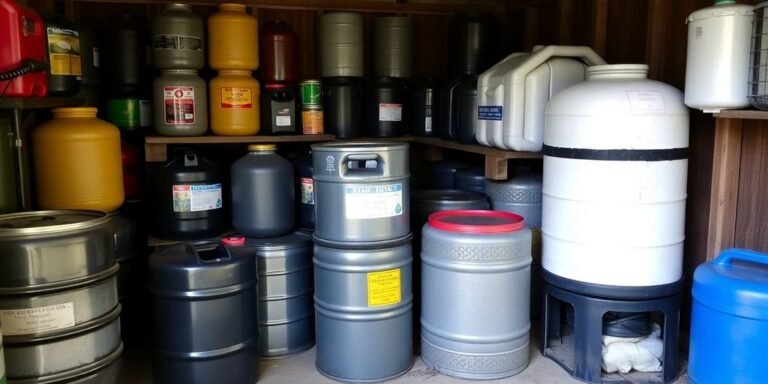
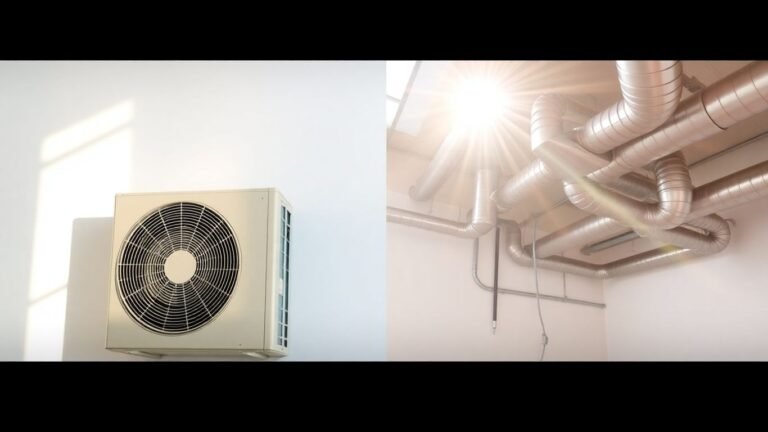

One Comment